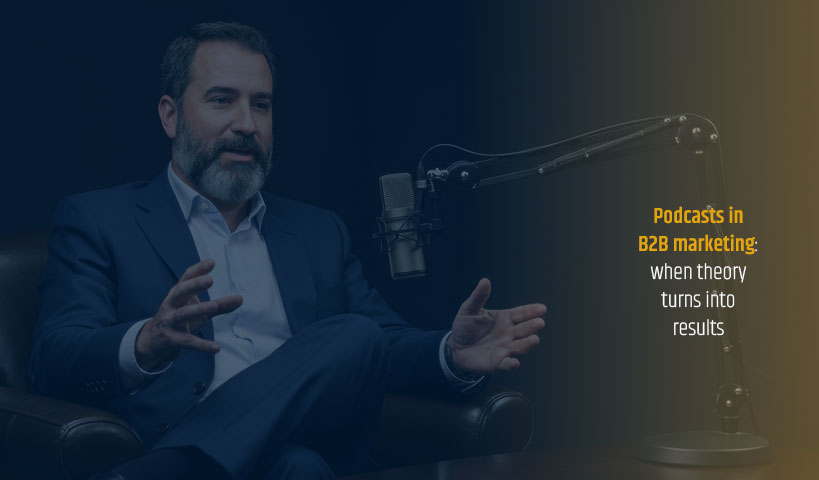
We didn’t choose this title for nothing! It touches three sensitive topics since the past five years now: influencers, social networks and content marketing. These three topics, and it’s part of the problem, affect both the customer relationship in B2C, as well as inter-company in B2B and, if we push it further a bit, companies and employees in B2E.
So, I want to end, once and for all, this mix of genres but also, its most painful flaw: gurus and pseudo-experts. I’ve already written many articles about marketing influencers and pseudo-experts on my personal blog, but I hadn’t done synthesis yet.
Self-proclaimed influence
Let’s render to Ceasar the things that are Ceasar’s: it was by reading a blog post by Hervé Monier entitled: “Self-proclaimed influencer, true expert or ambassador: which BtoB influencer are you?” . It’s based on the WHITE Paper by CMIT (the Club of Tech Marketers), associated with the agency Faber Conten. The title is: “The B2B influence, a story of guru, opinion leader or expert”.
It was after reading both the post and the White Paper, that my own synthesis really gelled and imposed itself.
The influence in B2B marketing has absolutely nothing to do with the influence that is currently ruling on social networks, especially on YouTube and Instagram platforms. The majority of marketing influencers are in fact, “self-proclaimed” or anointed by the number of subscribers or views, whether real or not.
In a recent post on this blog, we wrote about the real influencers:
“Here, we are in another league. No fashion victims, foodies, hotel rats or starlets in need of selfies on Instagram and who “plug” products for cash, a lot of cash …
Here, it’s serious and this kind of influence is certainly monetized, but not in the outrageous way of the «neos» … The pros give conferences, write books, advise companies, teach in universities, get involved in their work environment. In short, are less in «slick appearance», for the most part. ”
Exit the stars and gurus
In fact, one of the first conclusion of the White Paper and widely shared by it’s various contributors is: «rather than “gurus”, “stars” or self-proclaimed “influencers”, most influencers in BtoB are above all, experts, passionate about their work and recognized as such by their community, with whom they appear “legitimate”.»
Ligits not by millions of followers, fake accounts, robots, etc., but by their professional community that may not be large but, has a huge influence.
On social networks, their “numbers” can be negligible, but their blogs and references can also be immense. But it’ still a nano-influence on the Web and social networks scale.
“Creators of original content for the most part, even talented aggregators of third-party content, (…) BtoB influencers are appreciated for what they propose, their relevant analysis and critical reading of the news in their sector … rather than their ability to raise their necks and get “promoted like soap”.
That being said (and especially written), it is difficult for a company to establish a B2B content marketing strategy that sets its success targets on influences. Using these experts is a long research process but also involves contacting and establishing a business-expert trust. This applies to one, imagine for many.
In B2B influence isn’t easy
B2C has easy influence, but not B2B. In fact, I even presume to write that it is more difficult than in B2E. Indeed, the use of internal experts is much easier even an expert “is not prophet in his country” because companies have difficult recognition … But not the employees among themselves, especially with the shy but growing internal uses of blogs or socio-professional networks (SPN).
So to finally get over with influencers is to write as I did here three years ago: ” In B2B marketing, as in communication or as on social networks, especially with a blog, it (influence) stems in my opinion, from a long meticulous research of work. Also from originality of purpose and writing and, a mixture of factual analysis and opinion. Much like natural referencing, the capital of influence and credibility is built one post at a time! »
And also to quote Sama Hyder’s most recent post in Forbes:
« Influencer marketing has traditionally been harder to crack for B2B companies than for its B2C cousins—but that doesn’t mean it has to stay that way. »
The headline is that it’s “The Next Hottest Thing in B2B Marketing.” I do not agree with this sensational title but for the most part, her post confirms what I just wrote. Its nano-influencers, who are between one thousand and five thousand followers, are our experts with a limited audience.
If you have any questions or comments or, would like to share with us your experiences with influences in B2B, write to us. We’d like to share!




